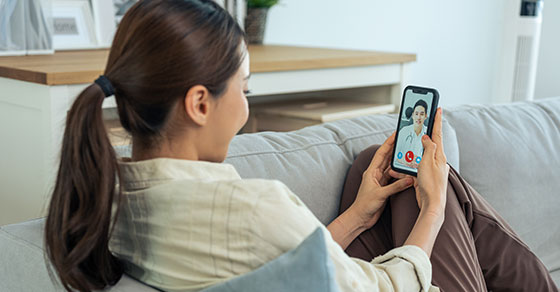
If you’re thinking about quitting alcohol or drugs on your own, it’s because you want change. You’re probably tired physically, mentally and emotionally. You might feel done with the cycle and ready to move forward. That’s a powerful place to be.
But before you take that first step alone, there’s something important you need to understand: quitting suddenly, without medical support, can be dangerous and in some cases, life-threatening.
This isn’t meant to scare you. It’s meant to protect you.
Why Is Withdrawal Sometimes Dangerous?
When your body has become dependent on a substance (especially alcohol, benzodiazepines, or opioids), it doesn’t just let go quietly. Your nervous system, brain chemistry, and vital functions have adjusted to the regular presence of these substances. Remove them too quickly, and your system can go into shock.
Knowing what your body may go through and why medical support matters can help you make an informed, life-protecting decision. You don’t have to wait for things to get worse before getting help that works.
What Can Happen During Withdrawal?
Some withdrawal symptoms are mild, like headaches, nausea or anxiety. But others can escalate fast and without a warning. These signs often happen without your control; if anything, you’ll become aware when it’s too late. That’s why waiting to see “how bad it gets” is one of the most dangerous things you can do.
Here are some of the possible severe symptoms:
- Delirium Tremens (DTs) – a severe and potentially fatal form of alcohol withdrawal that includes confusion, seizures, high blood pressure, and hallucinations. It can begin 2–3 days after your last drink.
- Seizures – especially with alcohol and benzodiazepines (like Xanax or Ativan).
- Heart complications – irregular heartbeat, dangerously high blood pressure.
- Severe dehydration or electrolyte imbalance – which can impact brain and organ function.
You may think you can “tough it out,” but withdrawal is not a willpower test. It’s an actual medical condition that deserves proper medical care. You wouldn’t treat a heart attack on your own now, would you?
Medical Detox Isn’t a Luxury – It’s a Lifesaving Step
We often hear people say they didn’t realize how serious detox can be until it was too late. Many try to quit cold turkey at home, believing it’s the faster or braver route. It’s not.
Allowing yourself the opportunity to recover safely in a protected environment isn’t giving up; it’s giving yourself a real chance.
A major reason many people relapse or struggle in the first days is the constant pull of familiar routines and daily stressors. When you’re surrounded by the same pressures, triggers, and responsibilities, it’s almost impossible to heal. You need distance – mental, emotional, and physical – from everything that’s been weighing you down.
Medical detox provides you with the following:
1. Safety – Doctors and nurses monitor your vitals, ease symptoms, and intervene if complications arise. Medications are sometimes used to prevent seizures or stabilize blood pressure.
2. Support – You’re not alone in a room trying to fight through the worst moments. Trained professionals are there 24/7 to help you physically and emotionally.
Detox is hard. But it doesn’t have to be dangerous.
Why You Shouldn’t Wait for It to Get Worse
It’s human nature to push through pain, especially if you’ve been through trauma. You might feel like you have to do this on your own, that needing help means weakness or failure. Maybe you’re telling yourself: “I don’t drink that much.” “I’ve quit before; I can do it again.” “I’ll wait until I hit rock bottom.”
Here’s the truth: there’s no safe level of dependence when it comes to withdrawal. DTs can occur even in people who don’t drink every day. Opioid withdrawal can lead to dehydration, heart strain, and increased risk of overdose if relapse happens after tolerance drops.
You don’t have to wait for a crisis to get help. You can act while you’re clear-headed, motivated, and ready.
“But I Want to Do This My Way…”
That makes sense. Taking back control feels important, especially after addiction has taken so much from you. The idea of checking into a detox program can feel overwhelming or even shameful.
But doing it your way doesn’t mean doing it alone.
The goal of professional detox is to make recovery safer, not harder. It gives you a foundation mentally, physically, and emotionally to build on. It’s not about handing over control. It’s about building a team that has your back.
Once your system is clear, the real work begins. At Metamorphosis, detox isn’t the end of your story; it’s the starting point of personalized care that fits your life.
What Substances Require Medical Detox?
While everyone’s situation is different, certain substances almost always require medical oversight during withdrawal:
Substances and Risks of Quitting Alone:
• Alcohol: Seizures, delirium tremens (DTs), heart complications
• Benzodiazepines: Life-threatening seizures, panic attacks
• Opioids: Intense cravings, risk of overdose after relapse
• Stimulants (cocaine, meth): Severe depression, suicidal thoughts
Even cannabis and certain prescription medications can cause distressing withdrawal symptoms if used heavily over time.
What If I’ve Already Tried Quitting Alone?
You’re not alone in that, either. Many of our Metamorphosis clients have tried to quit multiple times before reaching out. It doesn’t mean you did something wrong.
If anything, it means you’ve already proven how much you want to change. Now it’s time to do it safely, with help.
What to Do If You’re Ready to Quit Safely Today
Talk to someone – A trusted medical professional, support group, or treatment centre.
Learn more about medically supervised detox and how it can help you.
If you’re considering quitting alcohol or drugs, the safest first step is to talk to someone who understands the risks and realities of withdrawal. You can also learn more about substance use and recovery from trusted sources..
If you’re ready to explore your options for a safer, supported detox, reach out to our team at Metamorphosis – no pressure, just information.
Final Thought: Your Life Is Worth Doing This the Right Way
Quitting is hard. But doing it safely doesn’t make it weaker – it makes it smarter.
The choice to stop using is a turning point. The decision to do it with medical support can be a lifesaving one.
You don’t have to go through this alone. And you shouldn’t.
Key Takeaways:
- Quitting alcohol or drugs without medical support can lead to serious health risks like seizures and delirium tremens.
- Detox is not just about willpower. It’s a medical process that requires supervision for safety.
- Medical detox offers 24/7 care, symptom management, and a safer path forward.
- You’re not weak if you’ve relapsed or tried quitting before. It means you’re ready to try again.
- The safest first step is talking to someone who understands what recovery really takes.




